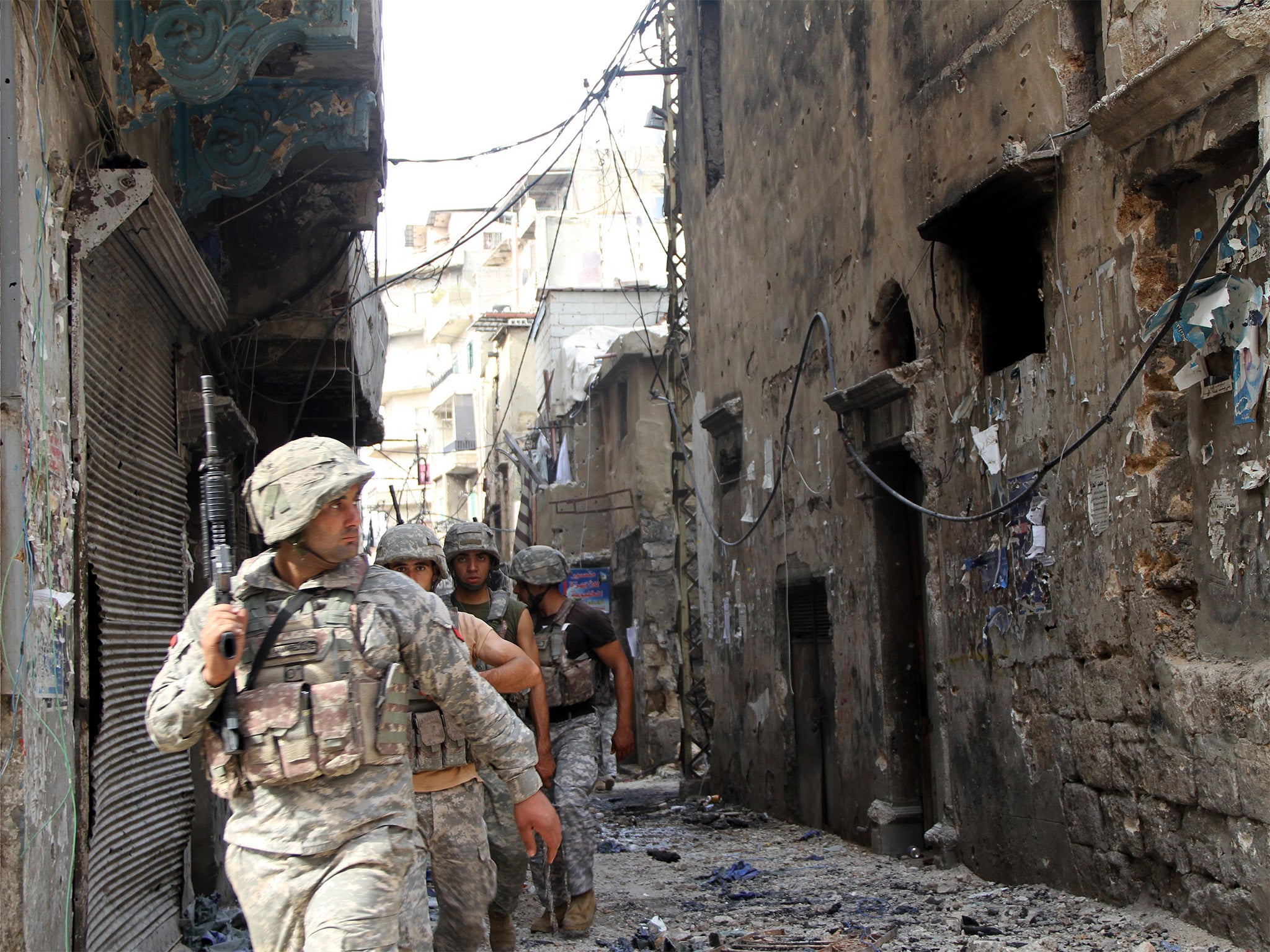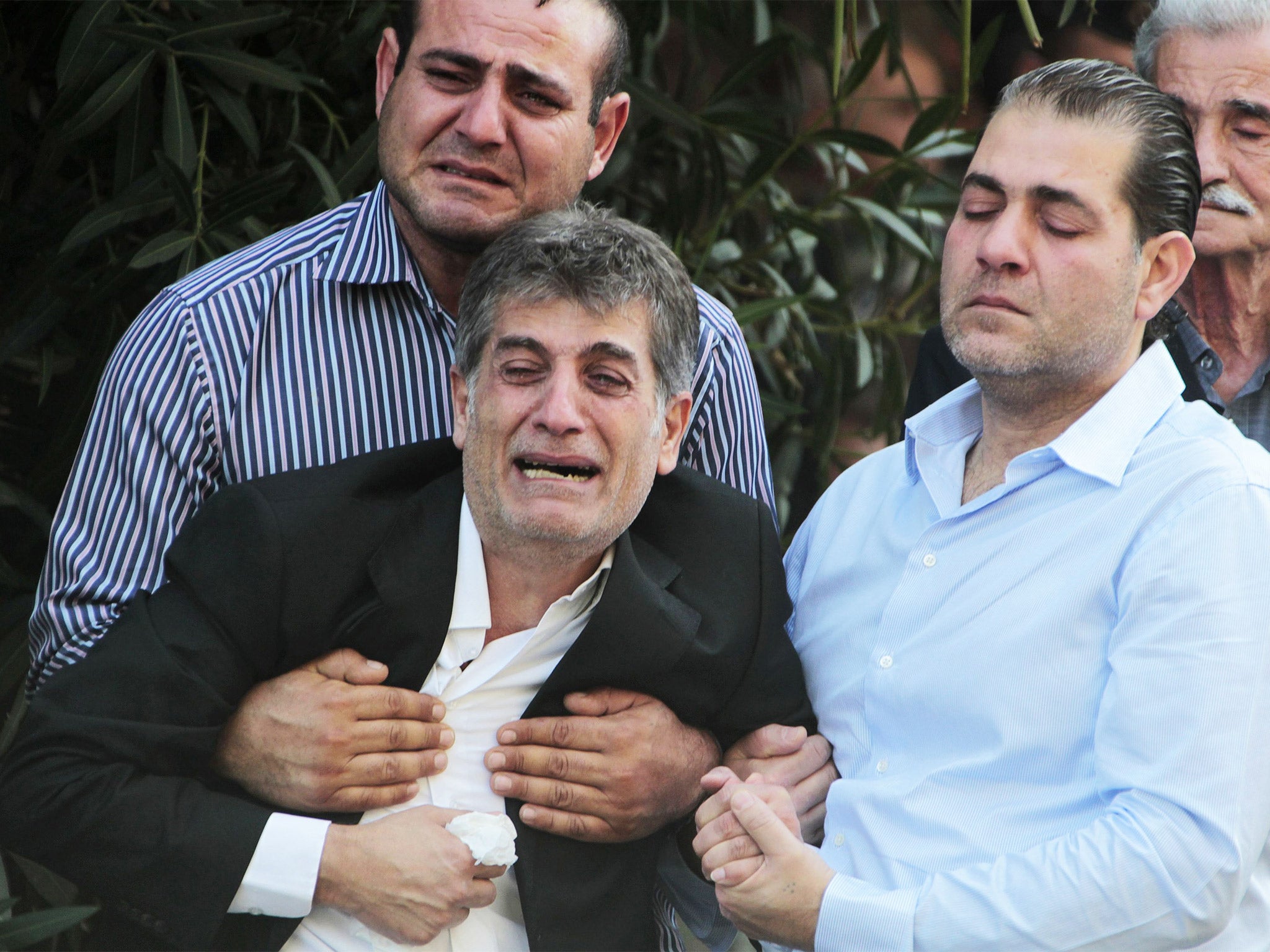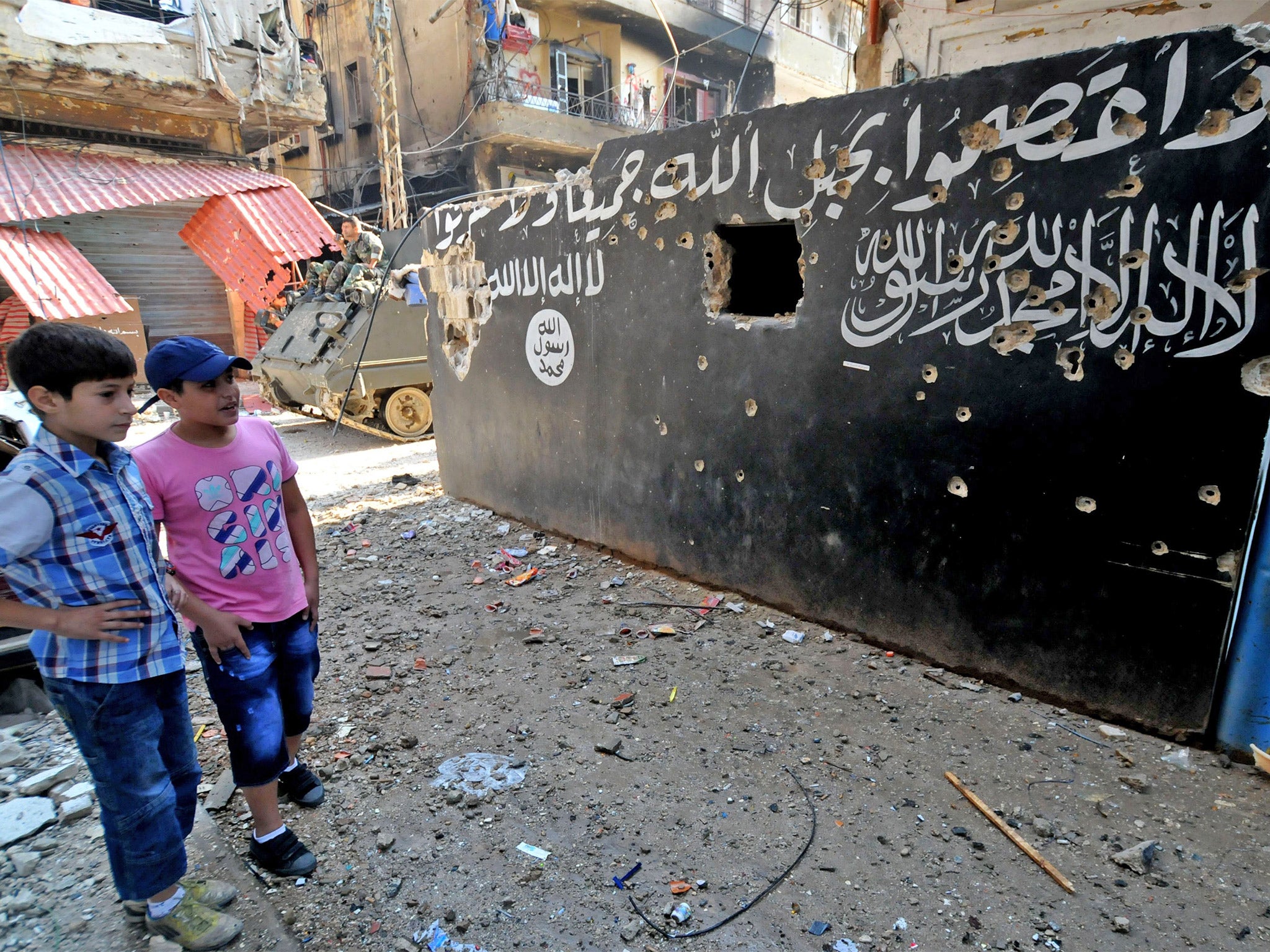Islamic State: Battle of Tripoli is won but hearts and minds are lost
Support for Isis growing as young people turn against Lebanese army

The streets of Tripoli’s souks are lined with glass. Fresh bullet holes form pockets in its historic buildings and the tower of the mosque.
Together with soldiers on every street corner and tanks stationed in position, it is evidence of the four days of fighting which rocked Lebanon’s second-largest city.
The Lebanese army reclaimed the city on Monday. Their opponents were terrorists, said the military, belonging to the al-Qaeda affiliate Jabhat al-Nusra and Isis sleeper cells. An estimated 42 people died in the clashes, including eight soldiers and 22 militants. Over 160 have been arrested and the country’s special forces are chasing suspects. The fight began after the army arrested Ahmad Mikati, who it said was an Isis recruiter. He has since confessed to plans to establish a safe zone for militants.
He also intended to raise the Isis flag, and declare allegiance to its leaders. His arrest lead to militants, primarily a group led by two young men, Osama Omar and Shadi Mawlawi, affiliated with Jabhat al-Nusra, to retaliate against the army. They targeted an army patrol in the souks on Friday.

The army vowed not to retreat “until the elimination of all terrorists”. The capture of the headquarters of Mawlawi and Omar on Monday, and a mosque in Bab al-Tabbaneh in Tripoli, appeared yesterday to have restored order.
Khaled Daher, a local Sunni MP, said the militants were “full of anxiety and energy”. Many young people in Lebanon remain frustrated, he said, that they are not able to go fight in Syria. “This is a normal response of these youths. They are so emotionally involved that supporting Jahbat al-Nusra seems like the only way,” he said.
Other officials have voiced support for the military. But Tripoli residents were less enthusiastic. “Look, this is the work of the Lebanese army,” exclaimed Umm Mohammed as she gestured towards damaged shops. “Why do they attack in the souks? The souks are the economic heart of the town.”
Isis and Jabhat al-Nusra flags still fly freely in Tripoli where half of the residents live on less than £3 a day. Many people accuse the army of applying a double standard: hunting down those who fight with the Syrian rebels, yet freely allowing Hezbollah fighters to cross the border to fight alongside the army of President Bashar al-Assad.
“Hezbollah, they kill people too,” said 50-year-old Abou Ahmed, who supports Jabhat al-Nusra. “They have even killed army soldiers. Why are they not put in jail?”

Younger residents are eager to bear arms for the Islamist groups, even if they no physical contact with them. “We are all Jabhat al-Nusra, we are all Isis,” said Ali, a 24-year-old restaurant worker who has spent the last few days fighting the army and dreams of an Islamic caliphate. “They are the only ones who are defending us,” he added.
The clashes in Tripoli are the second time in three months that Islamist militants have attempted to gain a foothold in Lebanon. In August, the Lebanese army clashed for five days with Jabhat al-Nusra and Isis fighters in the town of Arsal, on the Lebanese-Syrian border. Militants fled into the mountains around the village, taking almost 30 Lebanese soldiers and policemen hostage.
Join our commenting forum
Join thought-provoking conversations, follow other Independent readers and see their replies
Comments
Bookmark popover
Removed from bookmarks